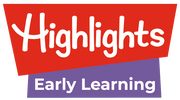Kindergarten Readiness = Kindness
When most people think of kindergarten readiness, they picture letter recognition, counting skills, or the ability to sit in a circle and follow directions. While those are important, they rest on a deeper — and often overlooked — foundation: social skills and emotional intelligence.
That’s exactly what the Early Learning Coalition of Polk County, Florida recognized through their Kindergarten Bridge initiative — a county-wide effort to help children transition smoothly from preschool to kindergarten. When they asked local kindergarten teachers what mattered most for kindergarten readiness, the answer was clear: Kindness.

For ELC Polk, readiness for school isn’t just about ABCs and 123s — it’s about preparing young children to enter kindergarten with the ability to show kindness, form relationships, and handle big feelings productively. That insight led to action. On June 26th, Polk County provided over 250 voluntary PreK providers with our Kindness Connections bundle — a playful, research-informed resource designed to help preschoolers build the social and emotional skills they need to thrive in kindergarten and beyond. In the coming weeks, a total of 500 bundles will be distributed across the area.
Because as Polk County understands, and research confirms, kindness is not just a “nice to have.” It’s essential for setting children up for success in school and life.

Kindness, Empathy, Problem-Solving Are The Foundation — Not a “Nice to Have”
Children entering kindergarten need to do far more than identify shapes or count to ten. They need to:
- Regulate emotions when they're frustrated, disappointed, or feeling stress
- Resolve conflicts with peers using words, not hands
- Stay calm and focused enough to follow multi-step instructions
- Ask for help when they need it
- Feel confident in trying new things — even when the outcome is uncertain
These foundational well-being skills are just as teachable as numbers or letters.
According to the Collaborative for Academic, Social, and Emotional Learning (CASEL), social skills and emotional intelligence improve children’s ability to manage stress, build relationships, and make responsible decisions — all of which contribute directly to readiness for school settings (CASEL, 2023). And longitudinal research shows that children with these strong foundational skills in early childhood are more likely to succeed academically, socially, and emotionally throughout their school years (Jones et al., 2015).
The Link Between Social and Emotional Development and Academic Learning
Social skills and emotional intelligence aren’t just about “being nice” or “getting along.” These things matter. These skills are ultimately about building the brain architecture that supports attention, memory, planning, and impulse control — executive function skills that are essential for learning.
In fact, a report from the National Academies of Sciences notes that “children’s cognitive development and their social and emotional development are deeply intertwined” and that early learning environments should integrate both to fully prepare children for school success (National Academies, 2015).
Children who are calm and emotionally regulated are more available for learning. Those who have practiced taking turns, listening actively, and managing disappointment can engage more deeply with peers, adults, and academic tasks.
Nurturing Social and Emotional Development Through Everyday Moments
Helping preschoolers build skills like self-confidence, empathy, mindfulness, kindness, and problem-solving isn’t just important — it’s urgent. Fortunately, these aren’t lessons that require worksheets or lectures. The most powerful social and emotional moments are integrated into playful learning: through songs, stories, movement, group activities, and reflection.
When children are invited to consider others’ feelings, take responsibility for their choices, celebrate what makes them unique, or collaborate with friends toward a shared goal, they’re not just preparing for kindergarten. They’re also developing lifelong tools for resilience, well-being, and success.
It’s these kinds of skills that should be at the heart of every kindergarten-readiness experience — just like Polk County is demonstrating. Learn more about how our Kindness Connections enrichment kit nurtures resilience and readiness through delightful play.
About the Author

Laureen Reynolds is Highlights Early Learning's Director of Product and a former preschool teacher.
References
CASEL. (2023). What is SEL? Collaborative for Academic, Social, and Emotional Learning.
https://casel.org/fundamentals-of-sel/
Jones, D. E., Greenberg, M., & Crowley, M. (2015). Early social-emotional functioning and public health: The relationship between kindergarten social competence and future wellness. American Journal of Public Health, 105(11), 2283–2290.
https://doi.org/10.2105/AJPH.2015.302630
National Academies of Sciences, Engineering, and Medicine. (2015). Transforming the workforce for children birth through age 8: A unifying foundation. The National Academies Press.
https://nap.nationalacademies.org/catalog/19401/

